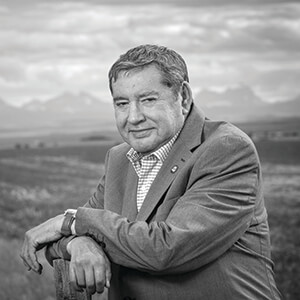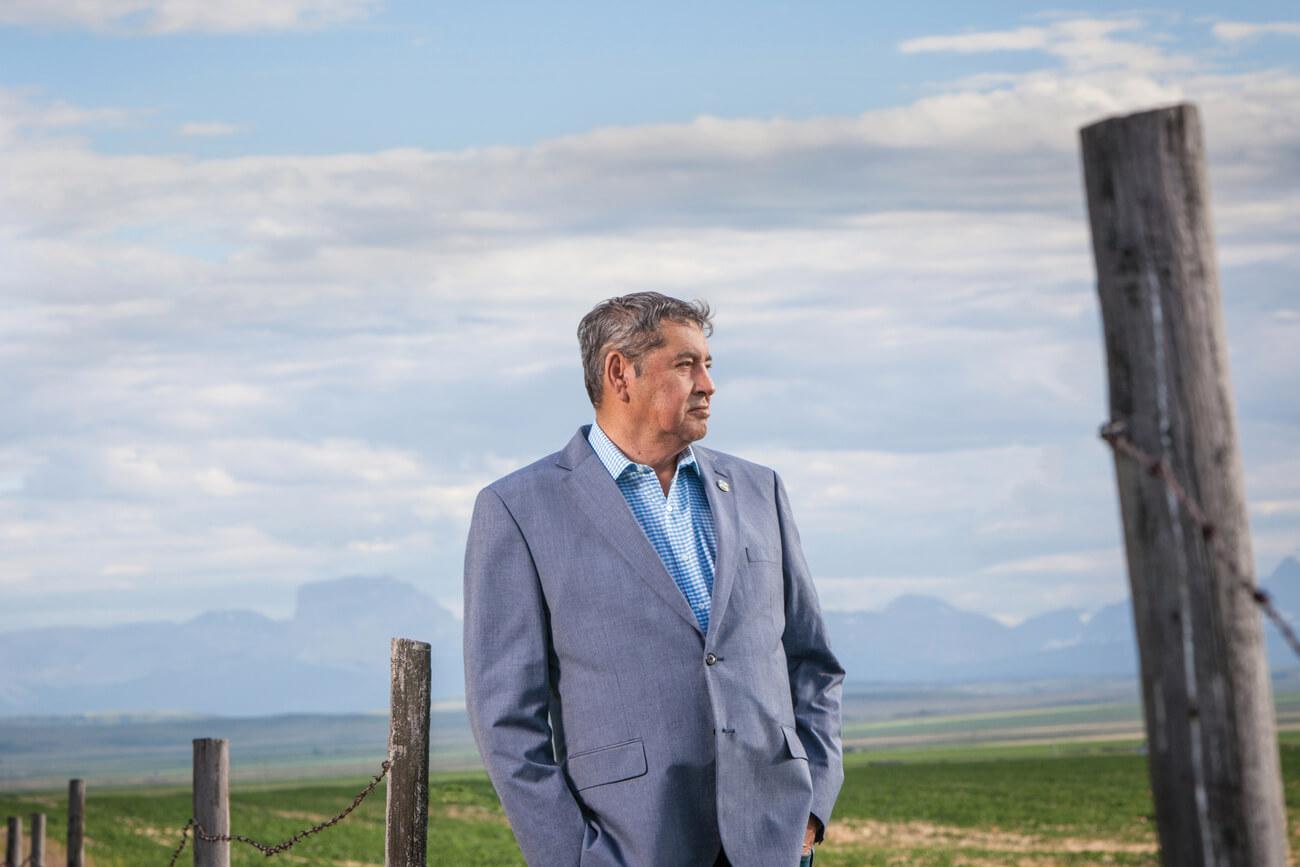Education is the “new buffalo,” and the work done at post-secondary institutions is essential to ensuring a strong and prosperous future, especially for Indigenous peoples.
What is this idea all about?
Our Elders call education the new buffalo. You know how in our traditional culture the buffalo used to provide almost everything a person needed – food, shelter, clothing? That is how they view education now. They keep encouraging everyone to get an education – much like my parents did for me.
How have you seen this idea in action in your life?
For me, growing up on my dad’s farm on the reserve, south of Standoff, I worked, farmed and ranched, and basically it was more of my parents’ push for me to go to college. They told us kids to get an education – they said we’d be better off for it. It was what they wanted for us. Their own schooling was limited. They were at boarding [residential] schools, and my mother only went through grade eight and my father through grade six. They saw education as a value and they wanted me to try college.
I went to Lethbridge College to study Vocational Agriculture. There were two three-month semesters that coincided with harvest and spring seeding. I was one of very few from the reserve to go on to post-secondary education. When I got there, there were a handful of students from here, including one in the ag program with me.
[After graduating from the college, Weasel Fat worked at the Lethbridge Research Centre and then in various ag-related jobs on the Blood Reserve. In 1987, he returned to the world of post-secondary education, attending Mount Royal University for upgrading, the University of Calgary where he earned a Bachelor of Education degree in 1992 and Gonzaga University where he earned a Masters of Arts in Educational Counselling in 1997. He is currently working on his doctoral degree focusing on Blackfoot cultural philosophy.]
It was during a practicum experience at the U of C, that’s the time I started to know that mainstream people didn’t know much about the First Nations people. I was working in a school southeast of Calgary – and that class, they were the best group of kids. Those kids were really hungry for First Nations teachings, for learning about our Blackfoot ways. My dad loaned me his buckskin outfit and I wore it one day, and showed them my dad’s headdress. It was remarkable to see these kids wanted to know more – they just wanted to learn.
Roy Weasel Fat's grandparents, Henry and Louise Standing Alone, were one of the first families on the Blood Reserve to farm and ranch. Weasel Fat and his sons still carry on that legacy today.
How do you see this idea in action in your work?
I began my career at Red Crow Community College in January 1994 by developing an adult literacy course and instructed there to 1996. In 1997, I was appointed the adult education coordinator, and in 2002, the vice president academic. In the
fall of 2013, I became President of Red Crow College. As president, I enjoy being able to promote the college. My work here is trying to get our community members educated. Accessibility is number one and it’s important that we have it right here in the community, that we are one of the five First Nations colleges in Alberta.
My tenure here at Red Crow was the right place for me as far as education is concerned. For us here, we are teaching our younger generation about their culture. A lot of them don’t really know about the culture – even the language – and that’s a critical area. At the foundation, we want our kids to know who they are, to be self-confident and not underestimate themselves.
One of our main advantages as a First Nations college is that we have direct access to our community Elders and the traditional way of knowledge. We have had an Elders Advisory Council for more than two decades. They help our students connect with their culture and with our Blackfoot ways of living and being, how we come together as a Blackfoot community, how to continue the practices of teaching this culture to our community. Elders are very important to our community. They can help members of our community think more about their Blackfoot identity.
Some of the questions our Elders ask our younger people as they start their journey of learning about their culture are: “Do you have a Blackfoot name? Who gave you that name? If you don’t have one, do you want one?” If so, the Elders will go about getting the student a Blackfoot name, because that’s part of the self-identity. They also ask “What clan are you from?” There are about 17 clans and it is another way students can connect to their community and history.
What we do here at Red Crow Community College is make it so anyone can come and learn about Blackfoot ways if they choose to come here. Once people return back into the culture it has a transformative effect. People change once they know. And for me, success is when a member of our community experiences success in education and in life. It is my obligation to pass on this knowledge of success to our students and other members of the community, so that they may enjoy the benefits of a post-secondary education and lead a better life – so they may benefit from the “new buffalo” as our ancestors benefitted from the buffalo. That’s what I want for our students.

Roy M. Weasel Fat is the president of Mikai’sto/Red Crow Community College and a 1974 graduate of Lethbridge College’s Vocational Agriculture program. As a leader, he has demonstrated vision and innovation, and he is responsible for the infusion of Blackfoot culture and values in every sector and level of education, including adult literacy, adult upgrading, trades, health and general studies, at the Standoff college.
Red Crow Community College was established in 1986 as a First Nations educational institute and initially offered upgrading and college prep courses. In the late 1990s, the college formed the Kainai Studies Department, which incorporated uniquely-designed courses built upon Blackfoot and Kainai worldviews. In its 31-year span, the college has evolved into a complete post-secondary institution offering diploma and degree programs in partnerships with many post-secondary institutions, including Lethbridge College.



